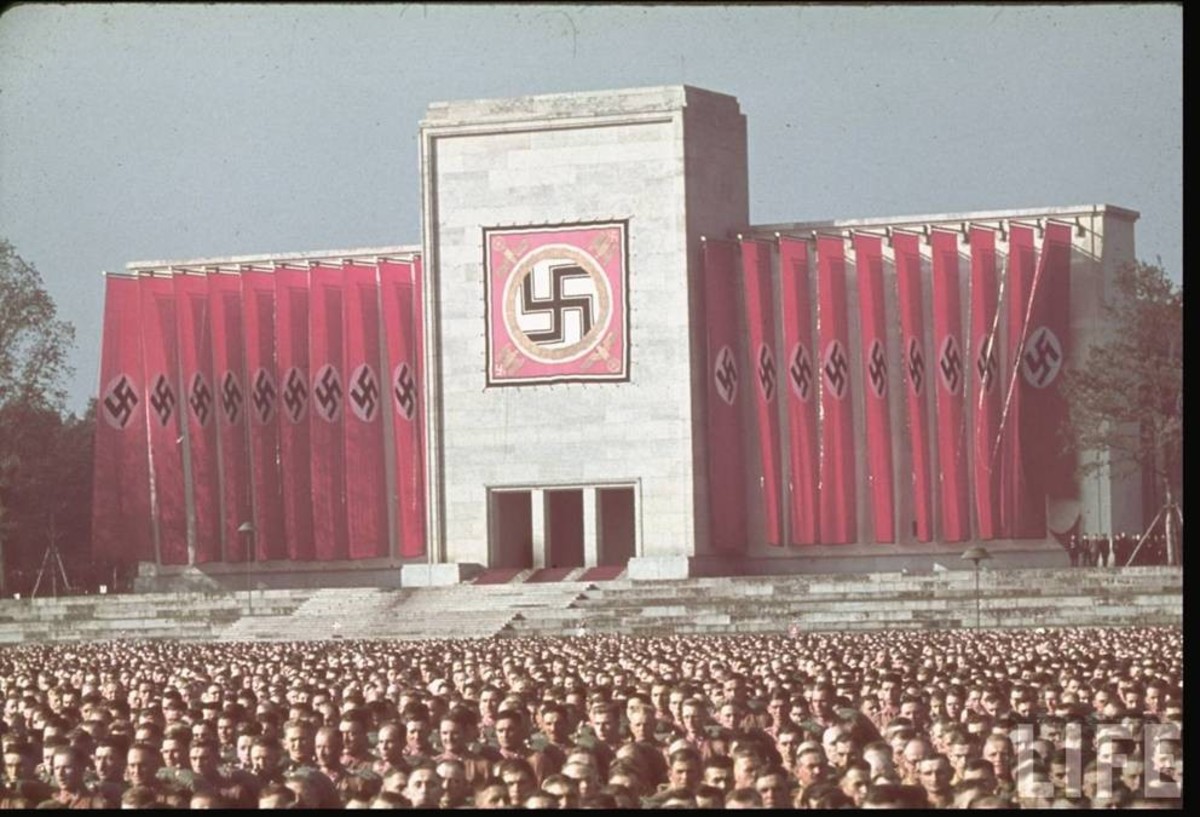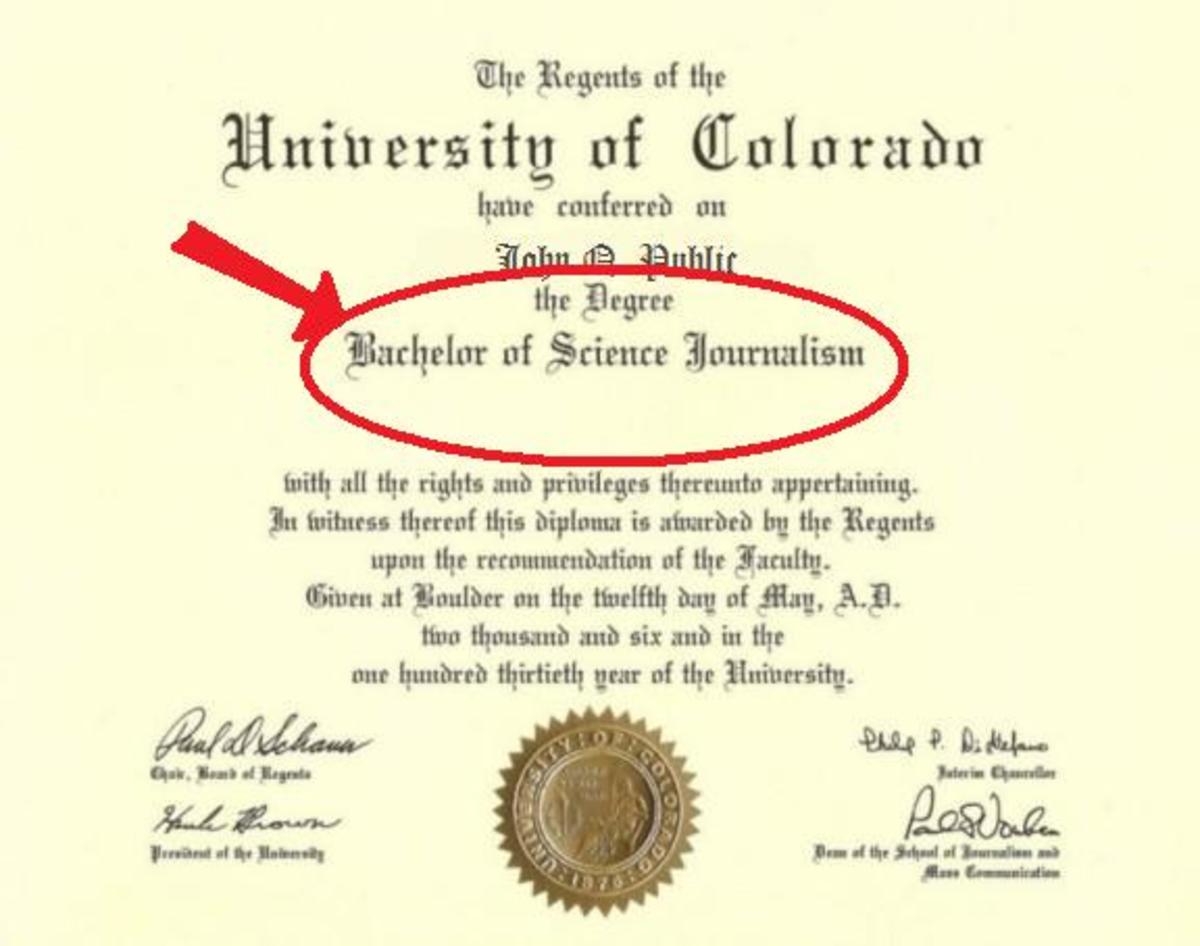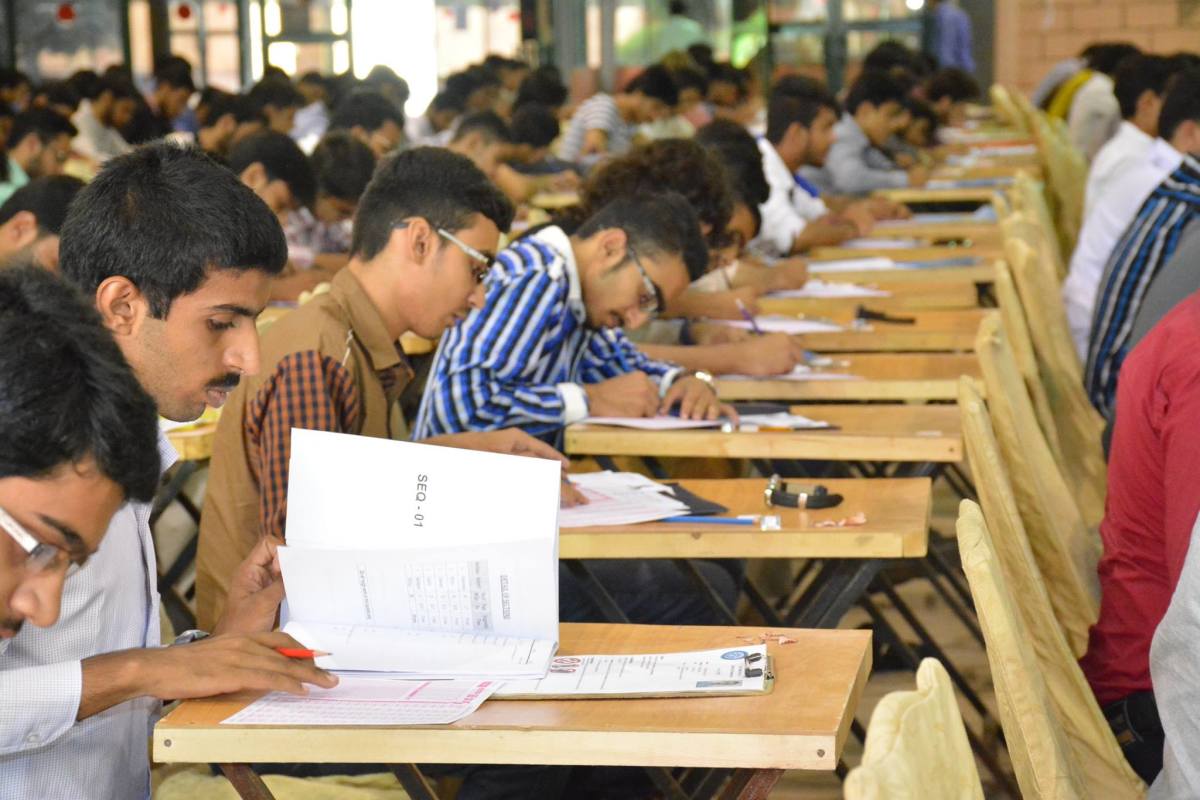University Professors -- Beyond Classroom Teaching

What do College and University Professors Actually Do?
Well, we do a lot of teaching: which includes creating courses, reading, note-taking, making copies, building a syllabus, obtaining materials, ordering books, making copies, creating assignments, grading tests/papers/assignments, tracking attendance, advising students, did I mention, making copies?
Aside from teaching, we have recruitment and retention responsibilities, serve on several ( usually 4 to 6) discipline-based (Biology, Business, History) and university-wide committees (Learning Environment, Promotion and Tenure, Student Disciplinary Committee, Library Acquisitions, Program and Curricular Development, Athletics Council, Honor Societies Association) just to mention a few.
To advance in one's academic career, it is necessary divide one's time in a reasonable manner. Teaching generally gets the lion's share of the work week hours, then a few hours will be devoted to various kinds of service obligations, and then . . . depending on the size and type of institution, faculty must devote a substantial amount of time to Faculty Development Activities.
So 1/5 (community college) to 1/4 (small to medium University) to1/3 (large University) to 1/2 research University) of a faculty's work hours will be focused on Faculty Development which includes research, workshops, seminars, writing research papers, making disciplinary presentations, serving on discussion panels, and publications.
A publication might be an article in an academic journal (a one to four month investment of time and energy) or it might be a book length manuscript (a one to four year investment of time and energy). Most Faculty Development activities and accomplishments are completed alongside and in between the time devoted to Teaching, Advising, and Service.
As part of my Faculty Development requirement, every year or so I present a research paper at a History Conference or attend a Teaching Seminar or Training Workshop. I have just completed the application letter and materials for a Holocaust Seminar that will be held in Washington DC at the United States Holocaust Memorial Museum, in January 2013. This hub contains "some" of the materials I was required to submit. To ask you to read a C.V./resume would be sheer cruelty. :)
Note: Each year several hundred professors apply to USHMM and only 20 are accepted. Its a very, very long shot that I will be accepted, but an absolutely tremendous learning and research opportunity. Chances are that I will not get accepted into the program . . . . But if I do, I promise to shout it from the rooftops (so to speak) on HubPages. :)

USHMM Faculty Seminar -- Application Letter
Center for Advanced Holocaust Studies~~~United States Holocaust Memorial Museum
To Whom It May Concern:
I have been receiving information about the Winter Faculty Seminar for over twelve years. In January 2002, I had the privilege of attending the Winter Seminar, topic – The Concentration Camp System. It was an incredible and intensive learning experience; much of what I learned would influence and shape three courses that I have offered at Reinhardt University, a private Liberal Arts institution, for the past ten years -- Twentieth Century Europe, Modern Germany, The Holocaust in History.
Each year’s topic is compelling and I have often wanted to attend another seminar. However, the topic for the 2013 Winter Seminar gripped me as no other has, “Teaching About the Holocaust: History, Memory, and Memorialization.” I thought about the seminar constantly for several days and then emailed Dr. Kunst to inquire about the possibility of attending a second time. He assured me there was no programmatic prohibition against it and encouraged me to apply.
However, during the last few weeks I have pondered why I had, and still have, such a strong, almost visceral response to this year’s topic. In retrospect, I have been collecting books on Museums, Public Displays, Political Art, and Memorials for over fifteen years – several of them addressing National Socialism and the Holocaust. And I have used these materials in my courses, but always felt there was so much more to understand, more to convey to my students.
Additionally, I have wondered why I am so strongly drawn to visual representations, when as a historian I have primarily dealt with written sources. Then it dawned on me that I have been surrounded, engulfed by “visual” social, political, and historic displays all of my life.
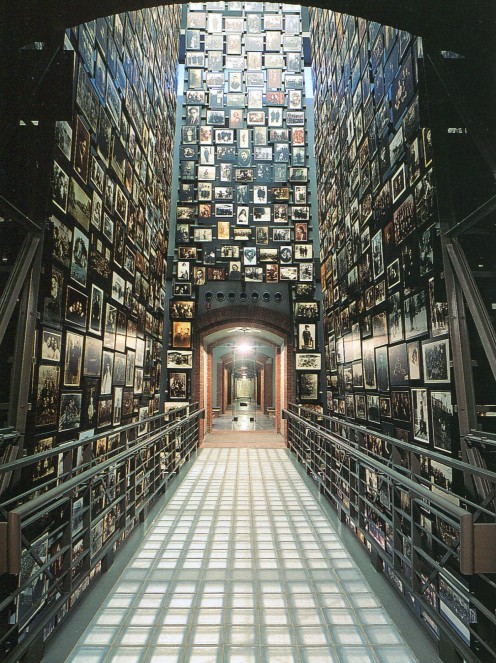
USHMM - Application Letter, continued
Edmund Kasimerz Ast and Wanda Kowalska Ast, survived the Nazi invasion of Poland and the subsequent Soviet occupation. After the war they fled Poland with their four young children, and secured jobs in the joint Allied section of Germany - what would become West Germany - working for the American military occupation force.
In 1948, after a long and tiring journey, they disembarked at Ellis Island. Their oldest son, Jacek, Staniswav Ast is my father. His father, Edmund was a “sculptor” and his mother, Wanda was a “painter” -- their homes and work shops were veritable museums, spaces in which to memorialize life and history. My intellectual and emotional life has been lived and developed against the backdrop of our private family history and their public art.
Note: I have written about my grandparents and their artistic and sculptural endeavors.
http://phdast7.hubpages.com/hub/A-Polish-American-Artist
http://phdast7.hubpages.com/hub/A-Polish-Scuptor-Working-in-Marble
http://phdast7.hubpages.com/hub/A-Mature-Painting-Style-Wanda-Ast
Other events have also determined the arc of my education, scholarly interests, academic career, and teaching. While we were stationed at Athenai AFB in Greece (1960’s) my father took us to Germany, because he believed it was essential for our political and moral education to visit Dachau Concentration Camp – I was twelve.
Although we were only eight hours from his childhood home, we did not enter Poland; his extended family still lived there, but my father was not convinced he would ever be allowed to leave Poland once inside the border. Spring 2003, I accompanied a group of college students to Poland; we visited museums, churches, open-air markets, art galleries; we volunteered at an orphanage; we spent a day at Oswiecim.
Dachau (Germany) and Oswiecim (Auschwitz - Poland) ---- were and are bench marks which defined the deep concerns, personal and professional, of my life.
I would appreciate and value, more than I can adequately convey, the opportunity to attend the 2013 Winter Faculty Seminar. It will broaden my scholarship and add depth to what I convey in the classroom. My C.V. and course syllabus are attached; a letter from my School Dean, Dr. Wayne Glowka, will arrive separately. Thank you for your time and consideration.
Dr. Theresa Ast ~~~~~~~~~~ Professor of History and Interdisciplinary Studies
Postscript: Got accepted, so I will be in DC the second week in January! :)

Required Materials: A Holocaust Course Syllabus
HISTORY 336 - The Holocaust in History
Course Description --This course will examine European anti-Semitism; the rise of Hitler and the nature of National Socialism; the implementation of the concentration camp system; eugenics and the euthanasia program; the Death Camps in Poland; the experiences of camp inmates, survivors, resistors, perpetrators, bystanders, rescuers; varieties of resistance; Holocaust literature, art, museums, memorials.
We will approach these and other topics from three major perspectives: history, literature, and philosophy. We will also examine art, architecture, religion, technology, science, and the sociology of ethics, as they relate to the Holocaust. The course will consider journals, books, and we will view and compose essays about four films.
Required Texts: Frankl, Victor. Man's Search for Meaning, 3rd edition
Donald Niewyk, Holocaust: Problems and Perspectives of Interpretation, 2002
Katz, Eric. Death by Design: Science, Tech & Engineering, 2006
Browning, Christopher. Ordinary Men, 2001
Borowski, Tadeusz. This Way for the Gas Ladies and Gentlemen, 1976
Course Purpose and Objectives -- This class will consist of group discussions, as well as lectures. It is essential that you attend class regularly, read the assigned materials, complete the assigned essay or analyses, and come prepared to discuss them. This is a history course, but I believe the most efficacious learning is interdisciplinary by nature. You will need to read, think, write, and speak thoughtfully and critically in this class.
Attendance --- Participation --- 20%
Films (4) Essay Required --- Journals (4) Essay Required --- 40%
Book Essays --- Assignments (5) --- 40%
Attendance Policy -- Attendance and classroom participation is an important part of your grade – 20% of your final grade. Each unexcused absence will result in a 5 point deduction from your attendance grade (for example: 100 – 4 unexcused absences x 5 = 80). Excused absences, with appropriate documentation from a doctor, hospital, car accident, or court hearing will result in a 2 point deduction. It is your responsibility to provide written documentation for an excused absence as soon as you return to class. Verbal explanations and phone notifications to the professor, although courteous, are not a substitute for official documentation.
Classroom Guidelines Disruptive behavior in the classroom will result in points deducted from your attendance grade. If disruptive behavior continues after a warning, I will exercise my professorial right to withdraw you from the class. I will treat each of you with respect and I expect you to treat each other that way. We may disagree, but we will do it calmly, rationally, and with courtesy.
Everyone’s right to express themselves will be respected. Those of you who are reticent (quiet) by nature, be prepared to speak up; those of you who are loquacious (talkative) by nature, be prepared to restrain yourself and defer to your classmates. All students will please remove their hats and caps (and head phones!!) during class.
Out of Class Time -- Generally, over the course of the semester, most students spend two to three hours outside of class for every hour spent in class (per week). Therefore, for a three-hour course, students should plan to devote six to nine hours weekly to reading, writing papers, reviewing class notes, and preparing for class, etc.

Daily Course Assignments
Academic Honesty and the Honor Code -- Reinhardt College students are expected to adhere to the Honor Code (see Student Handbook). Cheating on exams, helping others to cheat, or plagiarizing on essays, papers, and assignments, (the use of someone else’s ideas or words without formally and in writing) acknowledging them is absolutely unacceptable and will result in a “0” for the assignment, and possibly, in an “F” for the course. In this course, all work must be your own and well-written, in 12 point font, Calibri, 5-6 pages in length.
Late essays will be penalized 5 points per day. Always indicate the book, chapter, or article for any assignment at the top of the page with your name and day/time (MW 1:30) of class. Print an additional copy of every assignment and keep in a safe place. Do not turn in assignments by sliding them under my office door or emailing them to me; I will not grade them; turn them in at the next regularly scheduled class. Thank you.
Reading / Assignment Schedule -- The readings and assignments below are to be completed before you come to class on the day assigned, unless otherwise noted. Guidelines and instructions for some assignments will be handed out during the semester. NO LATE course work will be accepted during the final week of class.
Topics provided below are to guide lectures and class discussions. Read what is assigned regardless of the lecture topic listed for a particular day. We will discuss and choose Academic Journal Articles in class. Film Essays are always due the following Monday --- Essay Guidelines will be provided. Other deadlines are indicated below.
August
Mon 20 ~~ Approaches to the Holocaust/historical- philosophical-sociological
Wed 22 ~~ Early German History, Aufklaring, Romanticism ~~ Niewyk I Due
Mon 27 ~~ Prejudice, Religious Anti-Semitism ~~ 1st Journal Essay Due
Wed 29 ~~ Unification, Voelkish Thought
September
Mon 03 ~~ Labor Day – No Classes
Wed 05 ~~ Social Darwinism, Ideology ~~ 2nd Journal Essay Due
Mon 10 ~~ World War I, Versailles Treaty, Reparations ~~ Niewyk II and III Due
Wed 12 ~~ Reparations, Weimar Republic
Mon 17 ~~ Genocide, Fascism, National Socialism ~~ 3rd Journal Essay Due
Wed 19 ~~ Propaganda, Political Polarization
Mon 24 ~~ Hitler’s Popularity, Nazi Success ~~ 4th Journal Essay Due
Wed 26 ~~ Emigration Policies and Difficulties
October
Mon 01 ~~ Official Policies – Jews, Communists, Social Undesirables
Wed 03 ~~ Psychology, Spirituality Frankl, Man’s Search ~~Assign Due
Mon 08 ~~ Technology: Transportation/Killing Operations ~~ Niewyk IV Due
~~~~~~~~~~~~~~~~~~~No Classes – Fall Break~~~~~~~~~~~~~~~~~~
Mon 08 ~~ Concentration Camps Death by Design, II and III, ~~ Assign Due
Wed 10 ~~ FILM – Die Weise Rose / The White Rose ~~ Due 15th
Mon 15 ~~ Eugenics and the Euthanasia Program ~~ Niewyk V and VI Due
Wed 17 ~~ Technology and Ethical Considerations
Mon 22 ~~ Death Camps, Poland Death by Design, IV and V, ~~ Assign Due
Wed 24 ~~ FILM - The Conspiracy ~~ Due 29th
Mon 29 ~~ Discussion – Christopher Browning, Ordinary Men ~~ 1st Essay Due
Wed 31 ~~ The Einsatzgruppen, Systematic Murder in Soviet Territories
November
Mon 05 ~~ Resistance Movements, Techniques, Ordinary Men ~~ 2nd Essay Due
Wed 07 ~~ FILM - Defiance / The Bielski Partisans ~~ Due 12th
Mon 12 ~~ Victims, Bystanders, Rescuers, The Altruistic Personality
Wed 14 ~~ Denial, Revisionism ~~~~ David Irving versus Deborah Lipstadt
Mon 19 ~~ FILM - Die Shreckliche Maedchen / The Nasty Girl ~~ Due 28th
~~~~~~~~~~~No Classes – Thanksgiving Holiday~~~~~~~~~~~~
Mon 26 Museums, Memorials, Visual Representations of the Shoah
Wed 28 DISCUSSION - This Way for the Gas Ladies and Gentlemen ~~ DUE
~~~~~~~~~HAVE A BLESSED HANUKKAH AND CHRISTMAS~~~~~~~~~
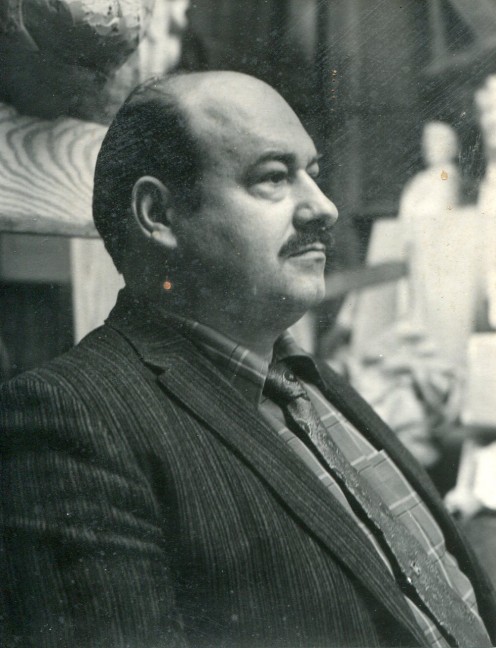
HISTORY 336 - Sample Assignment
Directions ~~ This Way for the Gas Ladies and Gentlemen ~~ Tadeusz Borowski
Your essay will be between 6-8 pages typed, double-spaced, Calibri, font size 12. Use good grammar, complete sentences, and no passive voice. Follow the guidelines below carefully:
Write a 2-3 page summary of the introduction. Include relevant personal/historical information about Tadeusz Borowski and the time/place in which he lived. Who was he? What were his strengths, gifts? What did his future look like before the Nazis conquered Poland? Complete your essay by responding to each of the stories in 1-3 paragraphs.
Story 1 – “This Way….” Describe “Canada.” Why is it important to TB? What is he afraid will happen? What does he have to say about religion, ignorance, deception? How do you explain (and feel about) the anger he expresses for the victims?
Story 2 – “A Day at…” What recurring symbols or images does TB use? What is a “selection?” How do inmates prepare for it? What kind of power do Kapos have over their fellow inmates?
Story 3 - "The People Who..." How are Gypsies treated differently? Why does TB describe the soccer field? What literary effect does he try to achieve? How does the use of sarcasm or macabre humor in the stories affect you? How do you think TB meant for it to affect you?
Story 4 - "Auschwitz, Our..." What does TB say about the normality or abnormality of the camps? What does he mean by the "absurdity of culture?" What do you think... is hope wrong? Is hope meaningless? Is it helpful inside a death camp? What do you think about his question, "can there be beauty if it is paid for with injustice?"
Story 5 - "Death of..." Why does TB tell us the story of Schillinger? What is his purpose? What does TB want to convey to the listener, the reader?
Story 6 - "Man with..." How does TB describe the Sonderkommando? Is this how these men are usually described? Why does the inmate Schreiber keep his package? Explain.
Story 7 - "The Supper..." Is there a different kind of morality in the camps, under extreme conditions? Yes. No. Explain this phenomenon. Defend or critique their actions.
(No Story 8) For Class Discussion Only
Story 9 - "Silence..." After the American soldiers arrived, what changed in the camp environment? How are the SS guards treated? Do you believe American soldiers assisted inmates and survivors in killing their previous guards? How you feel about that? Does traditional morality apply in this situation?
Story 10 - "A Visit..." What was the great desire of the men (and women) who knew they were destined for the gas chamber? Can they do anything to achieve their desire?
Story 11 - "January..." How do American soldiers react to survivors and to Germans? Do you believe TB? Why or why not? Do you believe that there was no duty or morality left in the concentration camps? Would a different author give us a different answer or picture?
Story 12 - "World of Stone..." How does this essay, this story make you feel? Why did TB write it, what was his purpose? You are welcome to make additional observations at this point.
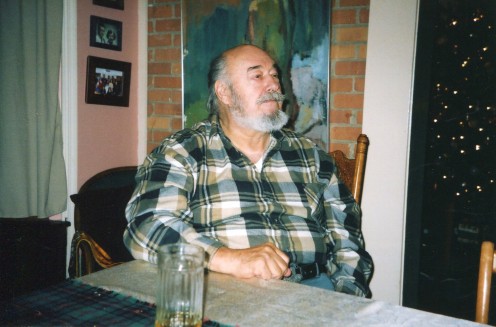
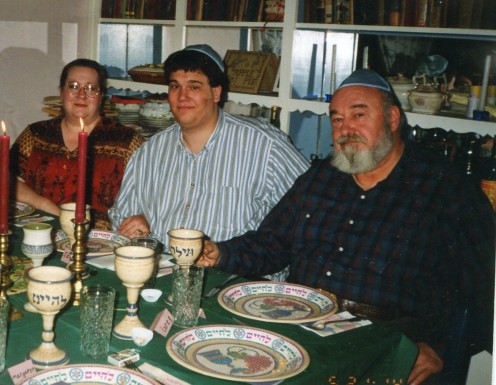
Related Articles ~~ World War II, Holocaust
- Liberation in World War II - U.S. Soldiers Enter Naz...
American GIs discovered many concentration camps as they defeated the German army in World War II. U.S. soldiers were en route to military targets and were unprepared to address the human misery they found in the camps; most stayed for a few hours an - What Did Most Germans Know About Nazi Concentration ...
American Armored and Infantry Division soldiers were among the first western individuals to enter the Nazi concentration camps. They found horrors beyond anything they might have expected: disease, starvation, evidence of atrocities and denial. - Last Look at American GI's and German Soldiers Durin...
World War II veterans said little about their experiences when they came home, but later in life they gave interviewed, responded to questionnaires, and contributed letter, photographs, diaries, and journals to historical archives. A number of them s - Secondary Sources on American Veterans, the Holocaus...
Primary Historical resources are extremely useful, but they can be difficult to access. So most of us need to rely on Secondary Sources. The following is a detailed list of scholarly books which is relevant to American Soldiers during World War II, t - Important Questions About World War II, Oppression, ...
Pondering what the German people knew at the time about the Nazi goals and activities can lead to a number of questions which are relevant for us today. - Writing to a Veteran's Daughter: WW II, 3rd Armored ...
Although many of the men, and women, who served in the U.S. military during World War II are no longer with us, their families still are. We should not forget them or the loved one they have lost who fought in a just and necessary war.

